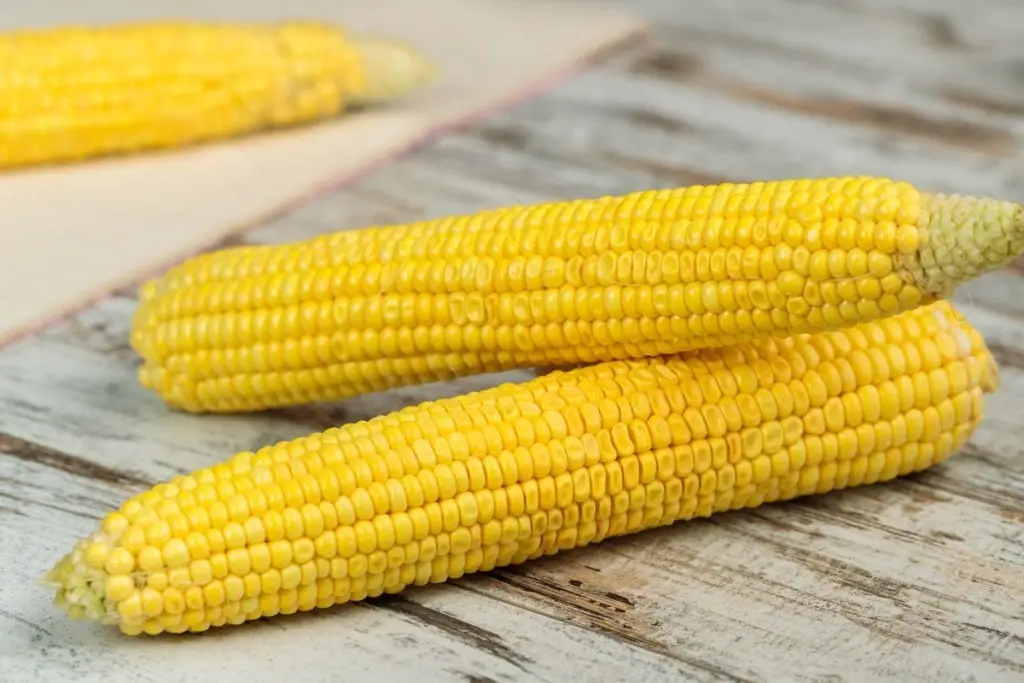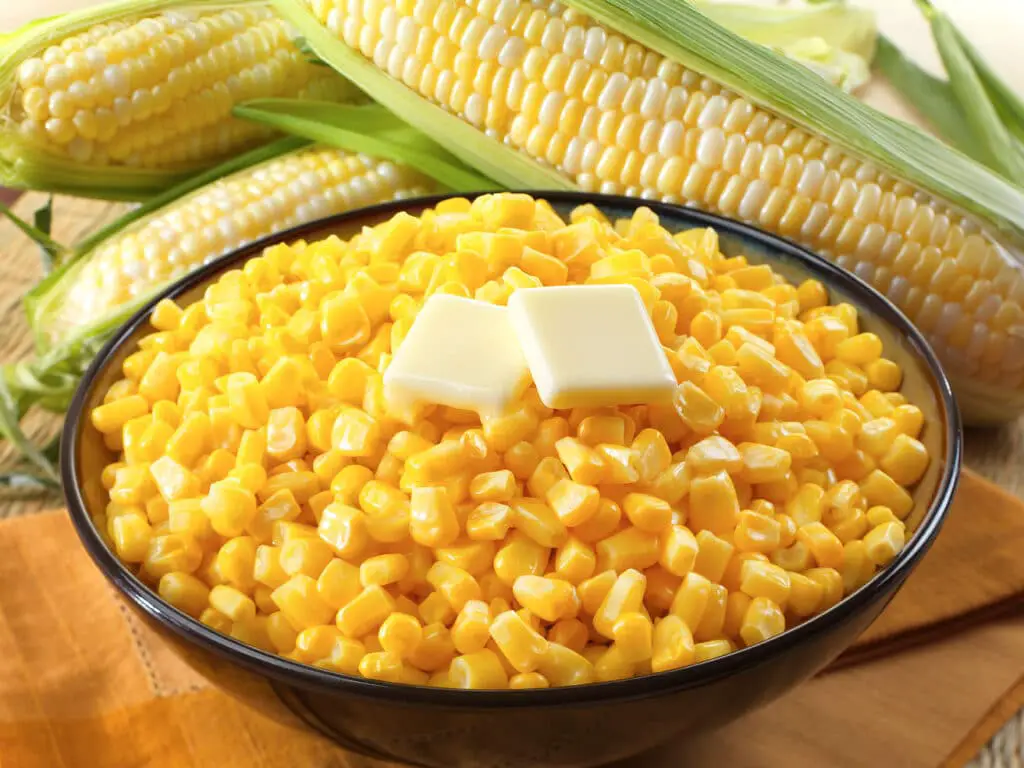Introduction
Is Corn Healthy For Weight Loss: To arrive at a well-informed answer, it’s essential to consider the nutritional profile of corn and its potential benefits and drawbacks in the context of a weight loss journey. Corn is primarily composed of carbohydrates, predominantly in the form of starch, which has led some to categorize it as a high-calorie food. Carbohydrates are created equal. Corn also contains dietary fiber, which can aid in digestion, promote feelings of fullness, and help regulate blood sugar levels, all of which can be advantageous for weight management.
Corn is a source of essential vitamins and minerals, including vitamin C, folate, and potassium. It also provides antioxidants such as zeaxanthin and lutein, which contribute to eye health. These nutrients play a vital role in supporting overall well-being and can be integrated into a balanced diet aimed at weight loss.
There are potential pitfalls associated with corn consumption that warrant consideration. Corn products like corn chips and popcorn often come with added fats, sugars, and salt, transforming them into less healthy options. Additionally, genetically modified (GM) corn is prevalent in many food products, raising concerns about the long-term health effects of consuming GM foods.

Can we eat corn during weight loss?
Thanks to the high fibre properties of corn, it proves to be a fantastic grain for aiding weight loss. The fibre content of corn helps in digestion which further facilitates weight reduction. Corn is very rich in antioxidants that help in improving metabolism.
Fiber Content: Corn’s high fiber content can promote a feeling of fullness and reduce overall calorie consumption. It helps control cravings and snacking, making it a valuable addition to a weight loss diet.
Low in Fat: Corn is naturally low in fat, making it a healthier alternative to many other snacks that are high in saturated fats.
Vitamins and Minerals: Corn provides essential vitamins and minerals, supporting overall health during weight loss when calorie intake may be restricted.
Versatile Ingredient: Corn can be incorporated into various dishes, from salads and stir-fries to soups and salsas, making it a versatile addition to a weight loss meal plan.
Replacing Unhealthy Options: Substituting high-calorie, low-nutrient snacks with corn can be a smart choice for those looking to shed pounds.
When should I eat corn for weight loss?
The best time to eat sweet corn for weight loss is as your starch for dinner at night. The high fiber content will keep you full well into the evening, preventing any high-calorie snacking later on.
As Part of a Balanced Breakfast
Starting your day with a balanced breakfast is a smart strategy for weight loss. Including corn in your breakfast can provide a steady source of energy and help prevent mid-morning cravings. You can enjoy corn in various ways, such as in omelets, whole-grain corn cereal, or corn-based pancakes. Incorporating corn’s fiber and nutrients into your morning meal can set a positive tone for the day.
In a Mid-Morning or Afternoon Snack
Corn can be a satisfying and nutritious snack option. Opt for air-popped popcorn (without excessive butter or oil) or a small serving of corn salad. Snacking on corn can help curb hunger between meals, preventing overeating during lunch or dinner.
As a Side Dish with Lunch or Dinner
Including corn as a side dish with your main meals is a common way to enjoy this grain. Its high fiber content can promote a sense of fullness, helping you control portion sizes. Steam or grill corn, and avoid adding excessive butter, cheese, or creamy sauces to keep it low in calories.
In Post-Workout Meals
After a workout, your body requires nutrients for recovery and muscle repair. Corn can be a part of your post-workout meal, providing carbohydrates for energy replenishment. Combine corn with a lean protein source (e.g., grilled chicken or tofu) and vegetables to create a balanced post-exercise meal.
Is corn better than rice for weight loss?
Corn has more sugars and protein, but rice is higher in calories and carbohydrates because of its starch content. Corn has a lower glycemic index while rice is the preferred choice in low-fat diet.
Calorie Content: A cup of cooked corn contains approximately 143 calories, making it relatively low in calories.
Carbohydrates: Corn is primarily composed of carbohydrates, providing around 31 grams per cup.
Fiber: Corn contains both soluble and insoluble fiber, promoting a feeling of fullness and aiding in digestion.
Protein: While not a significant source of protein, corn offers approximately 5 grams per cup.
Fat: Corn is naturally low in fat, with less than 2 grams per cup.
Vitamins and Minerals: Corn is a good source of essential vitamins and minerals, including vitamin C, vitamin B5 (pantothenic acid), folate, and manganese.
Is Indian corn good for weight loss?
Apart from aiding weight loss, it provides the necessary calories for daily metabolism. Though it a power-packed food, it is advisable to consume it in moderation to reap its benefits,” said Rinki Kumari, Chief Dietician, Fortis Hospital, Cunningham Road, Bangalore. Here are some reasons to include corn in your diet.
Fiber Content: One of the key reasons Indian corn is beneficial for weight loss is its high fiber content. Fiber helps keep you full, reducing the likelihood of overeating and aiding in portion control.
Low in Fat: Corn is naturally low in fat, making it a healthier option compared to high-fat snacks and foods that can contribute to weight gain.
Satiety: The combination of carbohydrates and fiber in Indian corn promotes a sense of fullness and can help you feel satisfied with smaller portions, leading to a reduced calorie intake.
Nutrient Density: Indian corn is not just about calories; it’s rich in vitamins and minerals that are essential for overall health. When you’re on a calorie-restricted diet, getting these nutrients is to maintain your well-being.
Versatility: Corn can be incorporated into a variety of dishes, such as salads, soups, stir-fries, and as a side dish. Its versatility makes it easy to include in your weight loss meal plan.
Is boiled corn good for fat loss?
One must know that the high fibre content in corn assists in weight loss in several ways. Probiotics found in corn help with digestion and speed up the body’s metabolism. As a result, the food gets digested more quickly, and you continue to feel full for longer. Corns significantly aid weight loss.
Low in Calories: Boiled corn is relatively low in calories, making it a suitable choice for those aiming to reduce calorie intake while still enjoying a satisfying snack or side dish.
High in Fiber: The fiber content in boiled corn promotes a feeling of fullness and satiety, which can help control appetite and reduce overall calorie consumption.
Nutrient Density: While focusing on weight loss, it’s to maintain proper nutrition. Boiled corn provides essential vitamins and minerals that support overall health, ensuring you get the necessary nutrients during your fat loss journey.
Versatility: Boiled corn is versatile and can be included in various meals. Whether as a salad topping, part of a vegetable medley, or a standalone snack, it can easily be integrated into your dietary plan.
Healthier Alternative: Replacing calorie-dense, less nutritious snacks with boiled corn can be a beneficial strategy for those looking to cut down on unhealthy food choices.
Is Makki good for weight loss?
Yes, this recipe is good for diabetics, heart and weight loss. Maize flour is a carbohydrate rich and energy rich flour loaded with fibre.
Low in Calories: Makki is relatively low in calories, making it a suitable option for those aiming to reduce their calorie intake while still enjoying a filling and satisfying meal.
High in Fiber: The fiber content in makki plays a crucial role in weight loss. Fiber promotes feelings of fullness and satiety, which can help control your appetite and reduce overall calorie consumption.
Nutrient Density: While focusing on weight loss, it’s to ensure that you’re getting essential vitamins and minerals to support overall health. Makki provides a range of these nutrients, helping you maintain good nutrition during your weight loss journey.
Versatility: Makki can be incorporated into various dishes, such as rotis (Indian flatbreads), salads, soups, and stir-fries, making it a versatile addition to your diet plan.
Healthier Alternative: Choosing makki as a whole grain option over refined grains like white rice or white bread can be a smart choice for individuals looking to improve their diet quality and lose weight.
Can I eat corn everyday and lose weight?
Pure, unprocessed corn in its natural form is a great addition to your diet if your goal is weight loss. Even sweet corn is conducive to weight loss when consumed in moderation! But if you are diabetic or have a certain medical condition, please check with a doctor before eating corn in any form.
Portion Control: Eating corn every day can be part of a weight loss plan as long as you practice portion control. Be mindful of the quantity you consume to avoid excessive calorie intake.
Preparation Methods: How you prepare corn matters. Boiling or grilling corn with minimal added fats and seasonings is a healthier choice compared to butter-soaked or fried options.
Balanced Diet: While corn can be part of your daily meals, it’s crucial to maintain a balanced diet. Incorporate a variety of foods from different food groups to ensure you receive all the essential nutrients your body needs.
Total Caloric Intake: Weight loss ultimately depends on maintaining a calorie deficit, where you burn more calories than you consume. While corn is a nutritious choice, it should fit within your daily calorie goals.
Diverse Foods: Relying solely on corn every day is not advisable. Incorporate a diverse range of fruits, vegetables, lean proteins, and whole grains to meet your nutritional needs.
Exercise: Combining a regular exercise routine with a balanced diet that includes corn can enhance your weight loss efforts.
Is corn good for weight loss and diabetes?
A moderate intake of resistant starch (about 10 grams per day) from corn can reduce glucose and insulin response. Regular whole grain corn consumption improves digestive health and can lower the risk of developing chronic diseases, such as type 2 diabetes and obesity.
Carbohydrate Content: Corn does contain carbohydrates, which can affect blood sugar levels. However, the fiber content in corn helps slow down the absorption of sugar, potentially leading to more stable blood sugar levels.
Glycemic Index: Corn has a moderate glycemic index (GI), meaning it has a slower impact on blood sugar compared to high-GI foods like white bread or sugary snacks. This makes it a better choice for managing blood sugar levels.
Portion Control: Portion size is crucial for managing diabetes. Eating an appropriate amount of corn, alongside other low-GI foods, can help maintain steady blood sugar levels.
Whole Grains: Opt for whole-grain corn products like whole-grain cornmeal or whole-kernel corn instead of processed options. Whole grains provide more fiber and nutrients.
Meal Planning: Consider corn as part of a balanced meal that includes lean protein, vegetables, and healthy fats. This can help balance the overall glycemic impact of your meal.

Conclusion
Corn is rich in carbohydrates, primarily in the form of starch. While this can be seen as a concern for those monitoring their carbohydrate intake, it’s crucial to recognize that corn also contains dietary fiber. Fiber is a key component that supports digestive health, aids in maintaining a sense of fullness, and assists in controlling blood sugar levels. These benefits can contribute to better weight management when corn is consumed in moderation.
Corn offers a range of essential vitamins and minerals, including vitamin C, folate, and potassium. These nutrients are vital for overall health, supporting functions such as immune response, cell division, and maintaining healthy blood pressure levels. Incorporating these vitamins and minerals into a weight loss diet can ensure a well-rounded nutritional intake. Not all corn products are created equal.
Concerns about genetically modified (GM) corn also persist. While GM corn is prevalent in the market, research on its long-term effects on human health is ongoing. Individuals who wish to avoid GM corn can opt for organic or non-GMO corn products. Choose whole corn or minimally processed corn products to reap the maximum health advantages. Processed forms of corn, such as corn chips and popcorn, often contain added fats, sugars, and salt, detracting from the natural health benefits of corn.

